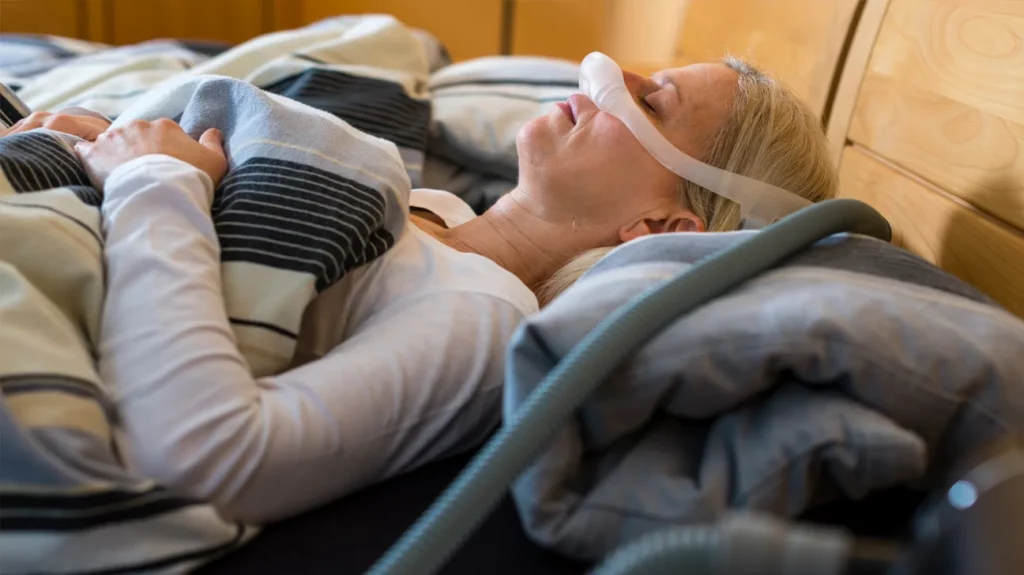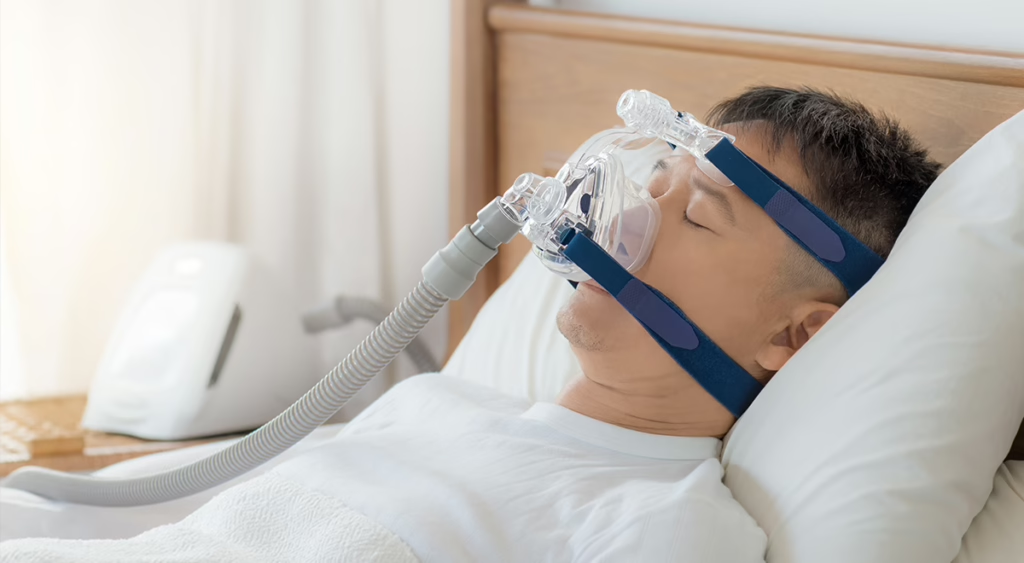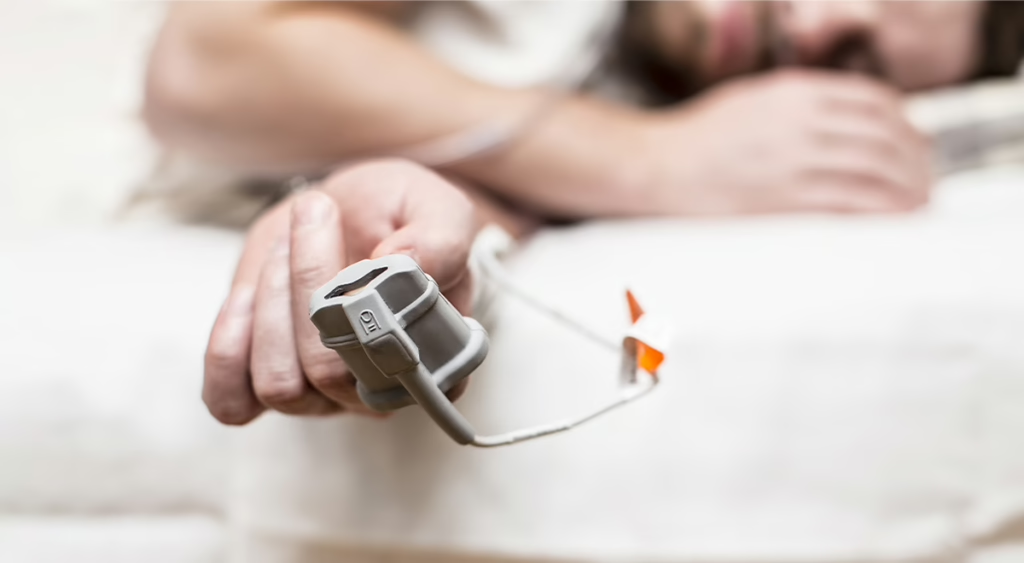Sleep apnea is a common sleep disorder that affects millions of people worldwide. It is characterized by pauses in breathing or shallow breaths during sleep, leading to disrupted sleep patterns and potentially serious health issues. If left untreated, sleep apnea can increase the risk of heart disease, stroke, high blood pressure, and other chronic conditions. Recognizing the importance of diagnosing and treating sleep apnea, Medicare provides coverage for sleep apnea tests to eligible beneficiaries.
Understanding Sleep Apnea And Medicare Sleep Apenia Test
Sleep apnea test medicare typically covers sleep apnea tests if they are deemed medically necessary by a healthcare provider. Coverage may include polysomnography and home sleep apnea tests, subject to specific conditions and requirements outlined by Medicare guidelines. Costs and coverage specifics can vary, so it’s advisable to consult with Medicare or a healthcare provider for detailed information.
Defining Sleep Apnea
Sleep apnea is a sleep disorder in which the individual experiences recurring episodes of interrupted breathing during sleep. These interruptions, known as apneas, can last for several seconds to minutes and occur multiple times throughout the night. There are three main types of sleep apnea: obstructive sleep apnea, central sleep apnea, and complex sleep apnea syndrome.
Obstructive sleep apnea is the most common form and is typically caused by the relaxation of the throat muscles, leading to a blockage of the airway. Central sleep apnea, on the other hand, occurs when the brain fails to send the proper signals to the muscles that control breathing. Complex sleep apnea syndrome is a combination of both obstructive and central sleep apnea.

Symptoms and Risks of Sleep Apnea
Common symptoms of sleep apnea include loud snoring, excessive daytime sleepiness, morning headaches, difficulty concentrating, and irritability. The risk factors for developing sleep apnea include obesity, older age, family history of the disorder, and certain medical conditions such as hypertension and diabetes.
It is important to note that untreated sleep apnea can have serious consequences on an individual’s health. Chronic sleep apnea can increase the risk of heart disease, stroke, high blood pressure, and diabetes. Additionally, the constant interruptions in breathing can lead to poor sleep quality, resulting in fatigue and decreased cognitive function during the day. Learn more about diabetes at https://www.health.harvard.edu/topics/diabetes
The Importance of Sleep Apnea Testing
Diagnosis Process for Sleep Apnea
Diagnosing sleep apnea involves a comprehensive evaluation of the individual’s medical history, physical examination, and sleep study. The sleep study, also known as a polysomnography, is the gold standard for diagnosing sleep disorders. It measures various physiological parameters during sleep, such as brain waves, heart rate, breathing patterns, and oxygen levels.
Furthermore, the medical history assessment in the diagnosis process for sleep apnea includes gathering information about the individual’s symptoms, lifestyle habits, and any underlying medical conditions that could contribute to the sleep disorder. A detailed physical examination may also be conducted to check for physical attributes that are commonly associated with sleep apnea, such as a large neck circumference or a recessed jaw.
Different Types of Sleep Apnea Tests
There are several types of sleep apnea tests available, including in-laboratory sleep studies, home sleep tests, and split-night studies. In-laboratory sleep studies require the individual to spend a night at a specialized sleep center where their sleep patterns are monitored and recorded. Home sleep tests, on the other hand, allow individuals to undergo sleep apnea testing in the comfort of their own homes using portable monitoring devices.
Moreover, split-night studies combine aspects of both in-laboratory and home sleep tests by starting with diagnostic monitoring at a sleep center and transitioning to continuous positive airway pressure (CPAP) therapy if sleep apnea is diagnosed during the first part of the night. This comprehensive approach helps healthcare providers determine the most effective treatment plan for individuals with sleep apnea.
An Overview of Medicare
What is Medicare?
Medicare is a federal health insurance program available to individuals aged 65 and older, as well as certain younger individuals with disabilities or specific medical conditions. It is a vital safety net that provides access to essential healthcare services for millions of Americans. The program was signed into law in 1965 by President Lyndon B. Johnson as an amendment to the Social Security Act, marking a significant milestone in the nation’s commitment to ensuring healthcare for its elderly population.
Medicare consists of several parts, each playing a crucial role in covering different aspects of healthcare. These parts include hospital visits, doctor appointments, prescription drugs, preventive services, and more. Understanding the nuances of each part is essential for beneficiaries to make informed decisions about their healthcare needs and coverage options.
Understanding Medicare Coverage
Medicare coverage can vary depending on the specific part of Medicare and the individual’s eligibility. Part A, often referred to as hospital insurance, provides coverage for inpatient hospital care, skilled nursing facility care, and hospice care. This coverage is crucial for individuals requiring intensive medical services or long-term care in a healthcare facility.
Part B, known as medical insurance, covers outpatient medical services, including doctor visits, lab tests, preventive screenings, and durable medical equipment. This part of Medicare is essential for ensuring access to necessary medical services outside of a hospital setting. Part D offers prescription drug coverage, helping beneficiaries afford the medications they need to manage their health conditions effectively. Click here to learn more about medications
Additionally, Part C, also known as Medicare Advantage, provides an alternative way to receive Medicare benefits through private insurance companies. These plans often offer additional benefits beyond original Medicare, such as vision, dental, and hearing coverage, as well as wellness programs. Understanding the various options available under Medicare Advantage can help individuals choose a plan that best suits their healthcare needs and preferences.
Medicare and Sleep Apnea Test Coverage
Eligibility Criteria for Coverage
In order to be eligible for Medicare coverage of sleep apnea tests, individuals must meet certain criteria. Generally, Medicare covers sleep apnea tests if the individual has symptoms consistent with sleep apnea, such as excessive daytime sleepiness, along with supporting medical documentation.
Furthermore, Medicare may also consider factors such as the severity of the sleep apnea symptoms and the impact on the individual’s overall health and quality of life. It is important for individuals to work closely with their healthcare providers to ensure that all necessary information is documented and submitted for Medicare review.
Coverage Limitations and Exceptions
Medicare may have certain limitations and exceptions when it comes to sleep apnea test coverage. For example, coverage may require prior authorization from Medicare, and the individual may need to show that other diagnostic tests have been conducted and ruled out. It is important for individuals to discuss their specific circumstances with their healthcare provider and Medicare to understand the coverage details.
Additionally, Medicare coverage for sleep apnea tests may vary depending on the type of test being conducted. Some tests, such as home sleep apnea tests, may have different coverage requirements compared to in-lab sleep studies. Understanding these nuances can help individuals navigate the Medicare coverage process more effectively.
Out-of-Pocket Costs for Sleep Apnea Tests
Estimating Your Costs
While Medicare provides coverage for sleep apnea tests, there may still be out-of-pocket costs associated with the testing process. These costs can include deductibles, copayments, and coinsurance. It is essential for individuals to review their Medicare plan details to understand their potential financial responsibility.
Understanding the intricacies of out-of-pocket costs for sleep apnea tests can empower individuals to make informed decisions about their healthcare. By delving deeper into the specifics of deductibles, copayments, and coinsurance, individuals can better anticipate and plan for these expenses. Moreover, being aware of any potential fluctuations in out-of-pocket costs based on the type of sleep apnea test needed can help individuals budget effectively.

Ways to Reduce Out-of-Pocket Expenses
There are several strategies individuals can employ to help reduce their out-of-pocket expenses for sleep apnea tests. One option is to choose Medicare Advantage plans that offer additional coverage for sleep apnea tests with lower out-of-pocket costs. Exploring different in-network providers and facilities can also help individuals find more affordable options. Additionally, individuals may qualify for financial assistance programs offered by Medicare or other organizations to help cover some or all of their sleep apnea test costs.
Furthermore, staying informed about the latest updates and changes in Medicare policies regarding sleep apnea test coverage can aid individuals in maximizing their benefits and minimizing out-of-pocket expenses. Engaging with healthcare providers to discuss cost-effective options and potential payment plans can also be instrumental in managing financial responsibilities associated with sleep apnea testing.
By recognizing the importance of diagnosing and treating sleep apnea, Medicare plays a vital role in covering sleep apnea test costs for eligible individuals. Understanding the diagnosis process, different types of sleep apnea tests, and Medicare coverage details can help individuals navigate the process and access the necessary testing to manage their sleep apnea effectively.
Moreover, advocating for increased awareness and education about sleep apnea within the healthcare system can lead to improved access to affordable testing options for individuals from diverse socioeconomic backgrounds. Collaborating with advocacy groups and healthcare professionals to address gaps in coverage and promote equitable healthcare solutions can contribute to enhancing the overall quality of care for individuals seeking diagnosis and treatment for sleep apnea.
Learn more about sleep test at: Navigating Sleep Testing in Adelaide: Tips and Resources

